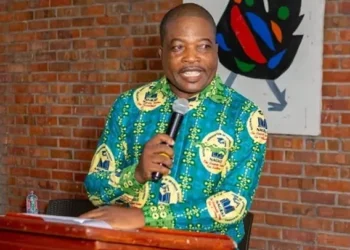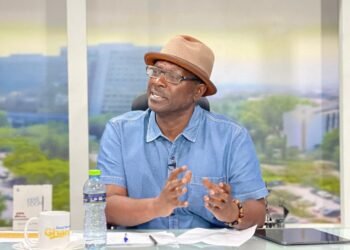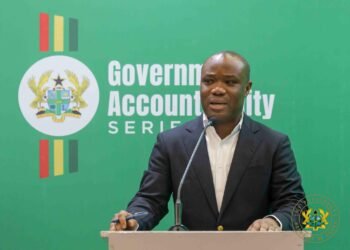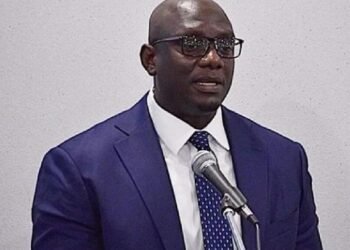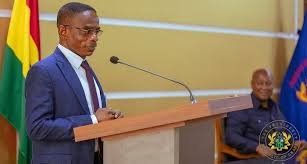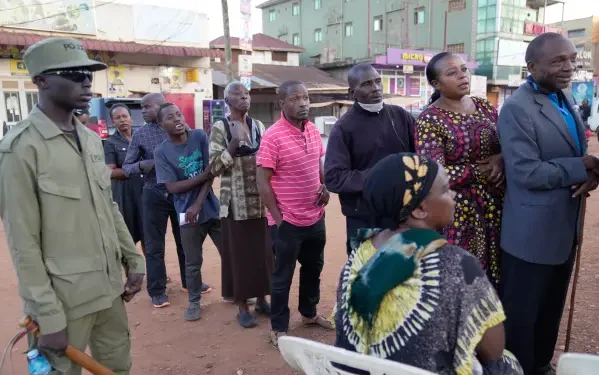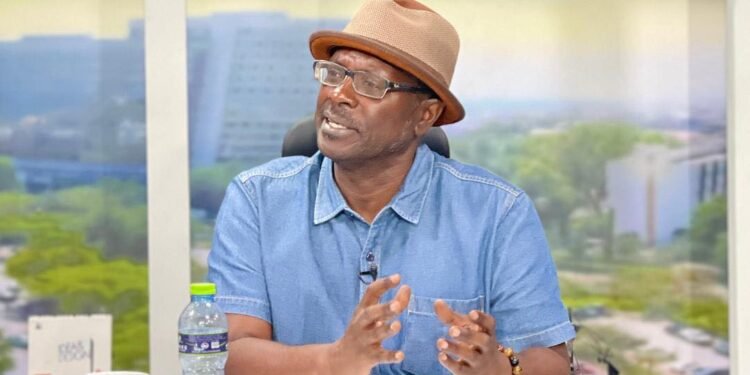The Minority Caucus in Parliament, led by Hon. Kojo Oppong Nkrumah, has mounted a fierce resistance against the government’s newly introduced GHS 1 Fuel Levy, calling for its immediate suspension.
At a press briefing held in Parliament, the Ranking Member on the Economic Committee and Member of Parliament for Ofoase Ayirebi, Hon. Oppong Nkrumah, slammed the manner in which the tax measure was introduced, describing it as “clandestine, undemocratic, and a stab in the back of suffering Ghanaians.”
According to him, the bill was not discussed at the Business Committee level, did not appear on the main Order Paper, and was never mentioned during the 2024 Budget hearing.
He noted that it was smuggled into parliamentary proceedings through an addendum at the end of the day’s sitting and pushed through with undue haste, ignoring calls from the Minority Leader for consultation.
“Even efforts from the minority leader to request that we suspend and allow more consultation were refused. And that’s why you realise that before its passage, our side had to wash our hands off what was being done to the people of Ghana and leave the chamber.”
Hon. Kojo Oppong Nkrumah, MP for Ofoasi Ayiribi and Ranking Member Economic Committee of Parliament
The MP went on to reveal that the fuel levy imposes an 8% transaction rate on every gallon of petrol or diesel purchased, translating into an additional four cedis per gallon.

He emphasized that this is one of the highest tax rates introduced at first instance in Ghana’s fiscal history, dwarfing other tax introductions such as VAT and even the controversial Electronic Transfer Levy (E-Levy), which started at 1%.
“We recall the NDC’s claim that the then NPP government had done no work for Ghanaians when they were transferring their money and therefore had no business in charging a 1% levy on Momo transactions. So we ask you, what is the work that the NDC has done when you are buying your fuel, for which reason they are now charging 8% tax on it?”
Hon. Kojo Oppong Nkrumah, MP for Ofoasi Ayiribi and Ranking Member Economic Committee of Parliament
He also pointed out the public outrage that has followed the levy’s passage, citing open criticism from the Chamber of Oil Distributors and growing discontent among driver unions, some of whom are threatening protests.
E-Levy’s Comparison
In a scathing comparison, Hon. Oppong Nkrumah rebuked the NDC’s opposition to the E-Levy when it was introduced by the NPP government.
“They called the 1% E-Levy pickpocketing. Now they have introduced a fuel levy that takes 8% from everyone, with no exemptions, and they call it smart economics? If E-Levy was theft, this is midnight robbery.”
Hon. Kojo Oppong Nkrumah, MP for Ofoasi Ayiribi and Ranking Member Economic Committee of Parliament
He went on to explain that the E-Levy exempted transactions below GHS 100 and was limited to those who opted for electronic transfers, but in contrast, Hon. Oppong Nkrumah argued that the fuel levy spares no one, not farmers, drivers, or even the most economically vulnerable.
“Consequently, any item that is transported, food, clothes, whatever, once you are transporting it, there’s a cascading effect that eventually, when we go full circle, will be paid by the everyday Ghanaian”.
Hon. Kojo Oppong Nkrumah, MP for Ofoasi Ayiribi and Ranking Member Economic Committee of Parliament
The Minority also challenged the government’s justification that the levy would help pay down energy sector debt. Hon. Oppong Nkrumah questioned the credibility of that claim, noting that the estimated GHS 5.7 billion to be raised in 2024 alone would still fall short of eliminating the accumulated energy sector debt by the government’s own December 2026 target.
Instead of this levy, the Minority Caucus proposed several alternatives. First, they called on the government to conclude renegotiations of the power purchase agreements (PPAs) initiated under the previous administration and to incorporate capacity and fuel charges into tariff calculations.

This, they argued, would help eliminate off-book debts resulting from the take-or-pay clauses in energy contracts signed between 2013 and 2016.
Second, they advocated for significant reforms to bring efficiency into the operations of GRIDCo and the Electricity Company of Ghana (ECG), to reduce technical losses in transmission and distribution. “If the government really means well, this is one of the areas it must front-load investment and reform,” Hon. Oppong Nkrumah stated.
Third, they called for a strategic pivot toward renewable energy, especially solar power, to cut down on fuel imports and mitigate the adverse economic impacts of high energy costs.
This, they noted, had already been signaled in the NPP’s 2024 manifesto and would offer a long-term solution to Ghana’s energy woes without burdening the citizenry with new taxes.

In closing, Hon. Oppong Nkrumah made it clear that the Minority would not relent in its resistance. “We represent over ten million Ghanaians, and we will not let this pass quietly,” he declared.
He disclosed that the Minority plans to embark on a nationwide campaign to engage civil society groups, driver unions, and the media to expose what they described as the “true impact” of the fuel levy.
They also pledged to stand in solidarity with the Chamber of Oil Marketing Companies, who have condemned the tax as detrimental to an already overburdened downstream petroleum sector. “If you include this new levy, about 26% of what you pay at the fuel pump is now taxes,” he lamented.
The Minority urged the government to withdraw the levy and instead consider the less painful and more pragmatic alternatives presented.
READ ALSO: Gov’t Tightens Grip on Rates, Sacrifices GH¢1bn in Bids as T-Bill Auction Misses Mark




